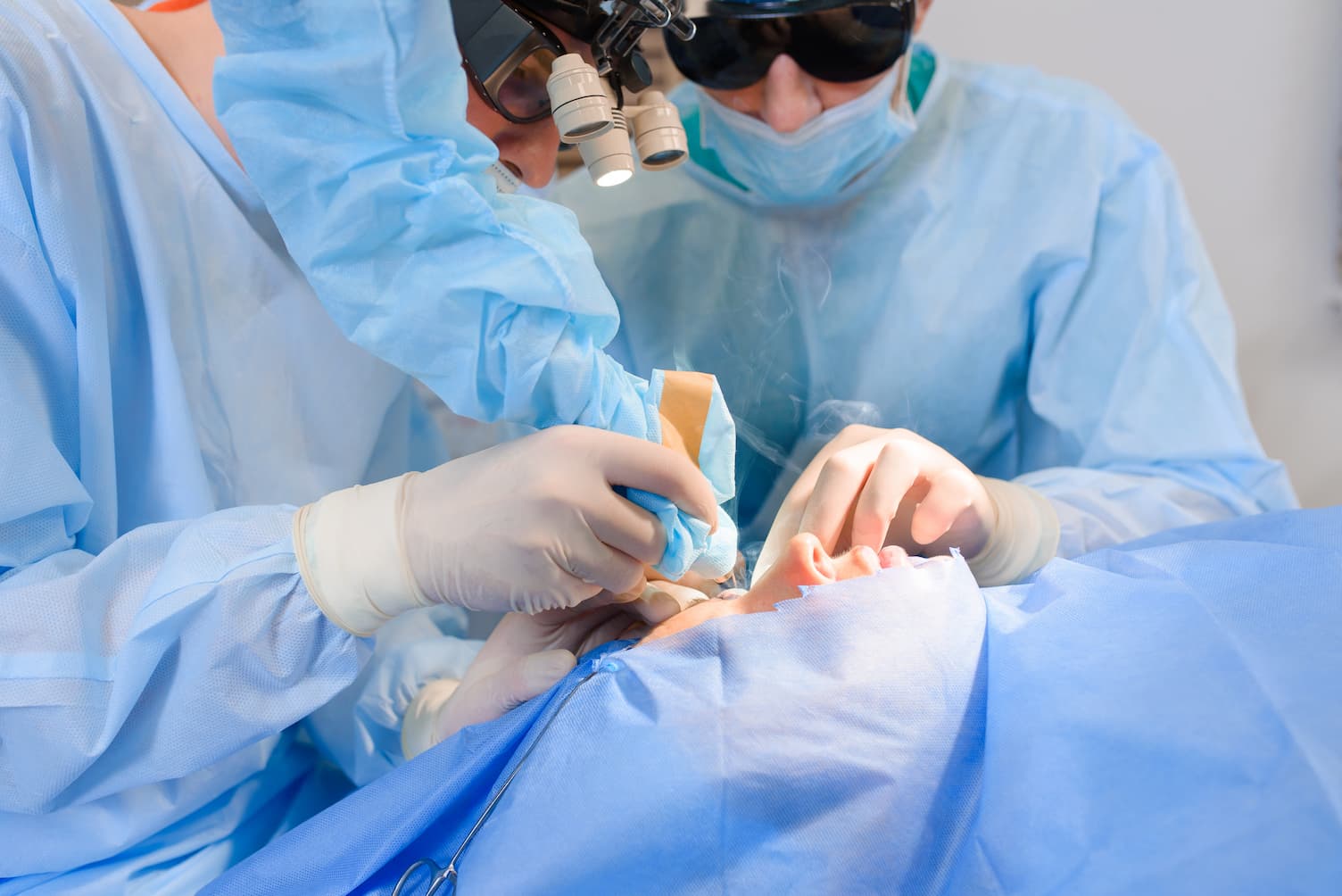Vitrectomy in Turkey
Healthy Türkiye helps you find the best vitrectomy in Turkey at affordable prices and adopts a 360-degree service approach in all areas of health through affiliated hospitals.
- Medical Treatment
- Eye Surgery in Turkey
- Corneal Transplant in Turkey
- Lasik Eye Surgery in Turkey
- Retinal Detachment Treatment in Turkey
- Cataract Surgery in Turkey
- Astigmatism Treatment in Turkey
- Oculofacial Plastic Surgery in Turkey
- Ptosis Treatment in Turkey
- SBK Surgery in Turkey
- Dermatofibromas Removal in Turkey
- Glaucoma Surgery in Turkey
- Ocular Prosthesis in Turkey
- Retinoblastoma Treatment in Turkey
- Uveitis Treatment in Turkey
- Vitrectomy in Turkey
- Eye Muscle Surgery in Turkey
- PRK Surgery in Turkey
- Phacoemulsification Surgery in Turkey
- Pneumatic Retinopexy Surgery in Turkey
- Presbyopia Treatment in Turkey
- Refractive Surgery in Turkey
- Scleral Buckling Surgery in Turkey
- Strabismus Surgery in Turkey
- Extracapsular Cataract Extraction Surgery in Turkey
- Squint Surgery in Turkey
- Excimer Laser Surgery in Turkey
- LASEK Surgery in Turkey
- Homepage
- Medical Treatment
- Vitrectomy in Turkey

About Vitrectomy in Turkey
Vitrectomy in Turkey is a type of eye surgery to treat various problems with the retina and vitreous. During the surgery, your specialist in Turkey removes the vitreous and replaces it with another solution. The vitreous is a gel-like substance found in the center of your eye.
The retina is a layer of cells at the back of your eyes. Light is used by these cells to deliver visual information to your brain. The vitreous should normally be clean so that light can pass through your eye and reach your retina. Certain issues can cause blood and debris to block this light. Scar tissue in your vitreous might also displace or tear your retina. All of these factors can impair vision. Eye surgeons in Turkey sometimes do vitrectomy for a detached retina. Extracting the vitreous gives better access to your retina and decreases the tension on your retina.
During a vitrectomy in Turkey, your specialist (an eye doctor called an ophthalmologist) uses small instruments to cut the vitreous and suction it out. Then your expert doctor does any other needed repairs, like repairing a hole in your retina. He or she might place air or other gas into your eye to help the retina stay in its proper position.

Vitrectomy Procedure in Turkey
Vitrectomy in Turkey is an operation that involves making three small incisions, about 1mm in length in the white of the eye, to enable fine instruments to enter the eye. Some or all of the vitreous gel (clear, jelly-like material) inside the eye is then extracted and replaced with a salty fluid (saline). Depending on the reason for your vitrectomy surgery additional procedures might be required; these will be discussed with you, prior to going on the waiting list for the operation.
Once the main part of the vitrectomy is completed, the retinal lining (a light-sensitive tissue on the inner surface of the eye) is examined for any weak areas. As such, you might need additional treatment such as; a freezing treatment (Cryotherapy) or laser treatment to those weak areas. This would be in order to reduce the risk of a post-operative complication called retinal detachment.
During the vitrectomy, you might be aware of some shadows and lights inside your eye; this is quite normal as your retina is still working. The amount of light and shadow you might experience can vary due to the intensity of the local anaesthetic.
Conditions Requiring a Vitrectomy
Vitrectomy removes and replaces the vitreous humor or gel-like substance in the back of the eye. This surgical procedure can address vision problems caused when foreign matter invades this generally pristine area of the eye’s interior. One instance of foreign matter is blood, from conditions such as diabetic retinopathy.
Light rays passing through the eye cause the foreign matter to cast shadows on the retina, resulting in distorted or greatly decreased vision.
Diabetes related retinopathy
A retinal detachment
A macular hole
Endophthalmitis (a critical infection inside the eye)
Sometimes, a vitrectomy is also applied to treat large, persistent spots and floaters in the back of the eye.

We Care About Your Health
Healthy Türkiye provides the best for your health and comfort. You will feel privileged with us.
7/24 Quality Personal Assistance Throughout Your Journey
Customizable for You All-Inclusive Packages
Get the Right Advice for your Health
What Are the Types of Vitrectomy?
The type of vitrectomy in Turkey you have will depend on the diseased part of your eye.
Anterior vitrectomy: You might need an anterior vitrectomy if you have vitreous leakage in the front part of your eye. The anterior chamber (the front part of your eye) includes your iris and lens. An ophthalmologist can perform an anterior vitrectomy surgery. You might need a retina specialist to do a pars plana vitrectomy on the posterior chamber of your eye.
Posterior pars plana vitrectomy: A posterior pars plana vitrectomy treats cases that affect the back (posterior) part of your eye. The pars plana are the flat part of the ciliary body of your eye. The posterior contains your retina, retinal pigment epithelium, choroid, and sclera. It also includes the vitreous cavity, which holds the vitreous.
Prepare for a Vitrectomy in Turkey
You will prepare for a vitrectomy in close consultation with your doctor and healthcare providers in Turkey. There are a few things you might want to ask your specialist specifically about in preparation for the vitrectomy in Turkey. You need to find out whether you should stop taking any medications before the surgery. If you are using any medications that can affect the bleeding and clotting processes, you may have to stop using them for about two weeks before the vitrectomy surgery.
Your eye surgeon in Turkey might examine the retina using special instruments to shine a light in your eye. An ultrasound of the eye might be advised to assess the structural changes that have occurred in the retina. In most conditions, your specialist will require that you avoid eating anything after midnight before your operation.

During a Vitrectomy in Turkey?
Vitrectomy surgery in Turkey in our practice is generally done with local anesthesia and sedation. Since you will be sedated, You can’t eat on the morning of the vitrectomy. You will be drugged and have your eye anesthetized. An anesthesiologist or nurse anesthetist will keep an eye on you. After the vitrectomy, you will have to wear a patch and shield over the eye until your appointment the following day.
If you have a retinal detachment and your eye surgeon puts a gas or oil to hold your retina in place, you will have to hold your head in a certain position and also look in a certain position for the operation to work. This is also true of surgery for macular holes which requires face-down positioning.
After your patch is removed during your post-operative visit, you will necessity to take eye drops. If during the week after the vitrectomy, your eye begins to hurt more or your vision starts to decline, you should call our office since that can indicate a problem with infection or elevated intraocular pressure. If you see a new shadow after the operation you need to call so the specialist can check to make sure you do not have a retinal detachment.
Using modern microsurgical methods, your retinal surgeon is able to repair many macular and retinal problems that were once thought unfixable. Your specialist can tell you what the success rates are for your surgery including the possibility of some vision improvement and the possibility of a lot of vision improvement.
After any eye surgery, there is a risk of infection, bleeding, and retinal detachment. Moreover, intraocular pressure in the eye might occasionally rise, prompting additional post-operative eye drops. Make sure to call Healthy Türkiye if you are having any problems.
Recovery from Vitrectomy in Turkey
Most patients go home on the same day of their vitrectomy in Turkey. You will need someone to drive you home from the hospital. In this condition, you can take advantage of the personal assistant service at Healthy Türkiye that we can provide to you. Your eye might be swollen and red for several weeks after the vitrectomy. While your eye is healing, you might have some eye pain, and your vision might be blurrier than before the surgery. You will have follow-up appointments so your eye surgeon in Turkey can check your vision and make sure your eye is healing.
After the vitrectomy in Turkey, you will need to:
Wear an eye patch, usually for about a day
Use eye drops to reduce swelling and prevent infections
Avoid some activities — like driving, intense exercise, and heavy lifting — while your eye heals
Take some time off work — usually 2 to 4 weeks
Hold your head in a certain position for a few days to a few weeks, to keep the gas bubble in the right spot
Ask your specialist when it’s safe to go back to work and start driving and exercising again. If the doctor puts a gas bubble in your eye, you will need to:
Ask your specialist how long you need to keep doing these things after surgery. Eventually, your eye will make new fluid to replace the vitreous that was removed during the operation. If the eye surgeon put silicone oil in your eye during your surgery, you might need a second surgery to remove the oil.
If a Gas Bubble Was Placed in Your Eye
You might need to keep your head in a facedown (or side-facing) position for a specific period of time. Your specialist will tell you exactly how long to stay in that position. It is very critical to follow these instructions to heal properly. You can’t fly in an airplane, go to the mountains, or scuba dive until the gas bubble is gone. This is because a fast shift in altitude might impact the size of the bubble.

2026 Cost of Vitrectomy in Turkey
All types of medical attention, like vitrectomy, are very affordable in Turkey. Many factors are also included in determining the cost of vitrectomy in Turkey. Your process with Healthy Türkiye will last from the time you decide to have a vitrectomy in Turkey until the time you are fully recovered, even if you are back home. The exact vitrectomy procedure in Turkey depends on the type of operation involved.
The cost of vitrectomy in Turkey does not demonstrate many variations in 2026. Compared to costs in developed countries like the United States or the UK, vitrectomy costs in Turkey are relatively low. So, it’s no wonder patients from across the world visit Turkey for vitrectomy procedures. However, price is not the only factor affecting choices. We suggest looking for hospitals that are safe and have vitrectomy reviews on Google. When people decide to seek medical help for vitrectomy, they will not only have had low-cost procedures in Turkey, but also the safest and best treatment.
At clinics or hospitals contracted with Healthy Türkiye, patients will receive the best vitrectomy from specialist doctors in Turkey at affordable rates. Healthy Türkiye teams provide medical attention vitrectomy procedures and high-quality treatment to patients at a minimum cost. When you contact Healthy Türkiye assistants, you can get free information about the cost of vitrectomy in Turkey and what this cost covers.
The cost of vitrectomy in the UK is in the range of £7.700-£9.100.
The cost of vitrectomy in the USA is in the range of $8.400-$12.400.
The cost of vitrectomy in Turkey is in the range of $5.000-$7.000.
Price of Vitrectomy in the UK
Price of Vitrectomy in the USA
Price of Vitrectomy in Turkey
Why Is Vitrectomy Cheaper in Turkey?
One of the main considerations before traveling abroad for a vitrectomy is the cost-effectiveness of the whole process. Many patients think that when they add flight tickets and hotel expenses to their vitrectomy costs, it will become very expensive to travel, which is not true. Contrary to popular belief, round-trip flight tickets to Turkey for a vitrectomy can be booked very affordably.
In this case, assuming you are staying in Turkey for your vitrectomy, your total travel expense of flight tickets and accommodation will only cost less than any other developed country, which is nothing compared to the amount that you are saving. The question “Why is vitrectomy cheaper in Turkey?” is so common among patients or people simply curious about getting their medical treatment in Turkey. When it comes to vitrectomy prices in Turkey, there are 3 factors allowing cheaper prices:
The currency exchange is favorable for whoever looking for vitrectomy has a euro, dollar, or pound;
The lower cost of living and cheaper overall medical expenses such as vitrectomy;
For vitrectomy, incentives are given by the Turkish Government to medical clinics working with international clients;
All these factors allow for cheaper vitrectomy prices, but let’s be clear, these prices are cheaper for people with strong currencies (as we said, euro, dollar, Canadian dollar, pound, etc).
Every year, thousands of patients from all over the world come to Turkey to get a vitrectomy. The success of the healthcare system has increased in recent years, especially for vitrectomy. It’s easy to find well-educated and English-speaking medical professionals in Turkey for all kinds of medical treatment, such as vitrectomy.
Why Choose Turkey for Vitrectomy?
Turkey is a common choice among international patients seeking advanced vitrectomy. Turkey’s health procedures are safe and effective operations with a high success rate, like vitrectomy. The increasing demand for high-quality vitrectomy at affordable prices has made Turkey a popular medical travel destination. In Turkey, vitrectomy is performed by highly experienced and trained doctors with the most advanced technology in the world. Vitrectomy is done in Istanbul, Ankara, Antalya, and other major cities. The reasons for choosing vitrectomy in Turkey are as follows:
High-quality hospitals: Joint Commission International (JCI) accredited hospitals have dedicated vitrectomy units that are specially designed for patients. International and national strict protocols provide effective and successful vitrectomy for patients in Turkey.
Qualified experts: The expert teams include nurses and specialist doctors, together to carry out vitrectomy according to the patient’s needs. All the included doctors are highly experienced in performing vitrectomy.
Affordable price: The cost of vitrectomy in Turkey is affordable compared to Europe, the USA, the UK, Singapore, Australia, etc.
The high success rate: Highly experienced specialists, the best available technology, and stringently followed safety guidelines for post-operative care of the patient, resulting in a high success rate for vitrectomy in Turkey.
Is Vitrectomy Safe in Turkey?
Did you know Turkey is one of the most visited destinations for vitrectomy in the world? It is ranked as one of the most popular tourist destinations for vitrectomy. Over the years, it has also come to be a very popular medical tourism destination, with many tourists coming in for vitrectomy. There are so many reasons why Turkey stands out as a leading destination for vitrectomy. Because Turkey is both safe and easy to travel to, with a regional airport hub and flight connections to pretty much everywhere, it is preferred for vitrectomy.
The best hospitals in Turkey have experienced medical staff and specialists who have performed thousands of medical services, such as vitrectomy. All procedures and coordination related to vitrectomy are controlled by the Ministry of Health in accordance with the law. Over many years, the greatest progress in medicine has been observed in the field of vitrectomy. Turkey is known among foreign patients for its great opportunities in the area of vitrectomy.
To emphasize, besides the price itself, the key factor in selecting a destination for vitrectomy is certainly the standard of medical services, the hospital staff’s high level of expertise, hospitality, and the safety of the country.
All-Inclusive Packages for Vitrectomy in Turkey
Healthy Türkiye offers all-inclusive packages for vitrectomy in Turkey at much lower prices. Extremely professional and experienced doctors and technicians carry out high-quality vitrectomy. The cost of vitrectomy in European countries can be quite expensive, especially in the UK. Healthy Türkiye provides cheap all-inclusive packages for a long and short stay of vitrectomy in Turkey. Because of many factors, we can provide you with many opportunities for your vitrectomy in Turkey.
The price of vitrectomy differs from other countries due to medical fees, staff labor prices, exchange rates, and market competition. You can save much more in vitrectomy compared to other countries in Turkey. When you purchase vitrectomy all-inclusive packages with Healthy Türkiye, our healthcare team will present hotels for you to choose from. In vitrectomy travel, you will have the price of your stay included in the all-inclusive package cost.
In Turkey, when you purchase vitrectomy all-inclusive packages through Healthy Türkiye, you will always receive VIP transfers. These are provided by Healthy Türkiye, which has contracted with highly qualified hospitals for vitrectomy in Turkey. Healthy Türkiye teams will organize everything about vitrectomy for you and have you picked up from the airport and safely brought to your accommodation. Once settled in the hotel, you will be transferred to and from the clinic or hospital for a vitrectomy. After your vitrectomy has been successfully completed, the transfer team will return you to the airport in time for your flight home. In Turkey, all packages of vitrectomy can be arranged upon request, which relaxes the minds of our patients. You can reach out Healthy Türkiye for everything you need to know about vitrectomy in Turkey.
The Best Hospitals in Turkey for Vitrectomy
The best hospitals in Turkey for vitrectomy are Healthy Türkiye, Memorial Hospital, Acıbadem International Hospital, and Medicalpark Hospital. These hospitals attract patients from all over the world seeking vitrectomy due to their affordable prices and high success rates.
Best Doctors and Surgeons in Turkey for Vitrectomy
The best doctors and surgeons in Turkey for vitrectomy are highly skilled professionals who offer specialized care and advanced procedures. With their expertise and state-of-the-art techniques, these specialists ensure that patients receive high-quality vitrectomy and achieve optimal health results.

Frequently Asked Questions
It is difficult to predict how much the vision will improve after the operation. The vitrectomy procedure is aimed at restoring the normal anatomy of the eye, either by removing blood or debris from the eye, removing scar tissue from the eye, or repairing a detached retina. The extent of eyesight improvement depends on how much damage the original disease caused to the retina and how well your body heals once the anatomy has been corrected.
The length of the vitrectomy procedure depends on the problem you have. The time for an operation can range from 30 minutes to over 3 hours. Your specialist will discuss with you the approximate timing he anticipates for your surgery.
When you are exhausted, take a break. Provide time for the eye to heal. Avoid doing anything that may lead you to move your head. This includes moving swiftly, lifting large objects, and performing tasks such as cleaning or gardening.
Generally, vision is distorted after a vitrectomy. This will vary depending on the type of surgery, e.g. if a gas bubble is inserted into the eye, as the bubble shrinks, you may see the edge of the bubble. Black spots are frequent during laser treatment.
It can take a few days, or even a few weeks, for the eyes to fully recover and for the vision to be restored to its full potential.
You should avoid any bending or lifting for 1 week after surgery. After one week, you might do some light housework and bend over to pick up small objects. Then, gradually continue your regular activities.
You might walk, read, and watch TV, but it is important to follow any positioning requirements that your specialist might have given you. You can resume your normal diet but begin with light foods and drinks first. Do not drink alcoholic beverages for 24 hours after your vitrectomy.
There is a reasonable chance that you will need a change in your glasses’ correction as a result of the retinal detachment surgery. Regardless, specialists would recommend holding off on ordering your new glasses until your eye has stabilized after the surgery.
A substantial quantity of drainage is expected during the first week. The discharge should gradually reduce. A clean washcloth, kleenex, or cotton ball can be used to clean the lids. Gently wipe the eyelids from the nose outward.
There might be some discomfort initially, which often becomes less on a day-by-day basis. Simple oral analgesia, such as paracetamol, for a few days is generally sufficient if required. It is common to experience mild itching for 1-2 weeks following vitrectomy.
